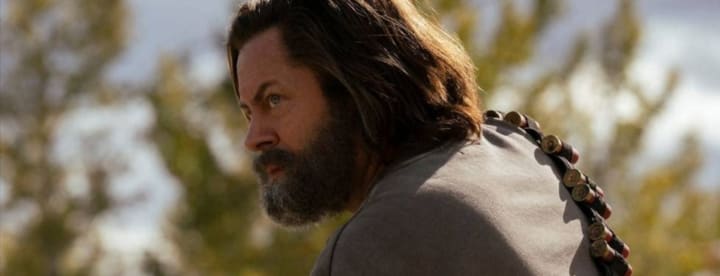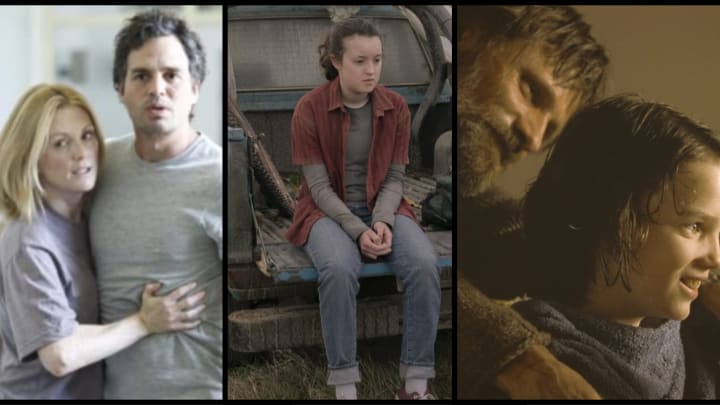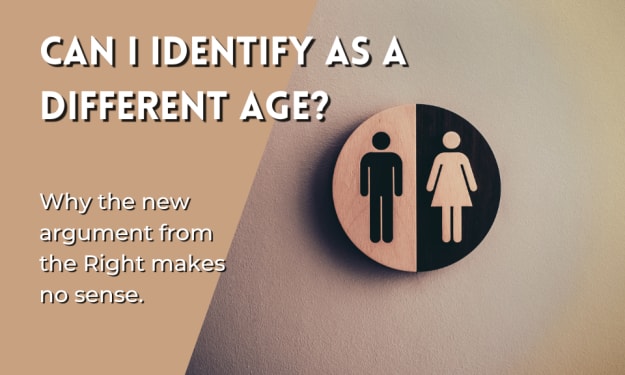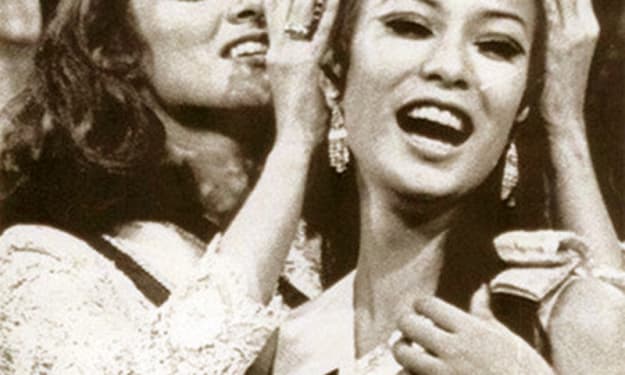The Last of Us and The Search for Queer Dignity
In the end, the fences matter and they keep the threats at bay, but Bill and Frank’s survival is only worth it as long as it’s a dignified one.

As far as the game goes, the relationship between Bill and Frank is inconsequential. Bill is a toughened-up survivalist who sets traps, guides you through scary buildings like a good NPC, and makes you laugh by being unpleasant, but in a quirky way. When you leave him behind, you’ll either remark how fun that little session of Bill’s Town was, or you’ll just mindlessly move on to the rest of the game.
As for Frank, he’s hanging by the neck in a Hawaiian shirt and he left an angry note to Bill letting him know how much he hated him.
Well, Bill, I doubt you'd ever find this note cause you were too scared to ever make it to this part of town. But if for some reason you did, I want you to know I hated your guts. I grew tired of this shitty town and your set-in-your-ways attitude. I wanted more from life than this and you could never get that.
And that stupid battery you kept moaning about -- I got it. But I guess you were right. Trying to leave this town will kill me. Still better than spending another day with you. Good Luck, Frank
Honestly? Still better than whatever Disney thought they were doing by making Lefou "openly" gay for two seconds. But I digress.
In a world of tragedy, Bill and Frank having been romantic partners is implied and, in the great scheme of things, it doesn’t matter. It is a character trait. In the same way, Bill could have been a woman, a black man, a soldier, or a redeemed criminal; while each of these would come with different implications, who Bill is doesn’t matter. What matters is the tragedy of being alone, of losing the one thing that was familiar to him. The point is to show the player how much has already been lost, and how much more can still be taken from you.
Bill and Frank are, in this context, just another tragedy at the end of the play. In a world like this, is it even worth it to love something so deeply?
This nihilistic approach to the end of the world is the thing that keeps me away from most apocalypse stories. If the intention is to show a world getting progressively worse, my interest is lost. I am a woman. I am queer. I am an immigrant. I am trapped in the endless hamster wheel of late-stage capitalism. I’m already living in my own little apocalypse, thank you very much. The underlining message of these end-of-the-world stories seems to be, “what is even the point?” and I don’t care for that.
I expected very little from episode 3, but it seems that Craig Mazin and Neil Druckmann understand the importance of hope when telling a story about the end of the world. After all, Ellie is hope for humanity, and if what is left is not worth saving, the much-needed cure means nothing.
In episode 3, we do not meet the tragedy, but the reclaiming of humanity. The search for dignity even in death. And how refreshing and important it is that this story is told through the eyes of queer men.

If there is one thing that the two previous episodes of The Last of Us should have taught you is that there is no place for men who love in this world. Familial and romantic attachments are quickly curtailed so that survivors can carry on to more important things, such as foraging, running, and, of course, shooting mushroom zombies. Joel learns this lesson in episode 1 and has it reiterated in episode 2 when the one person he cares about gets bitten. The only kind of love that is allowed is the destructive, violent kind. Joel, good protagonist that he is, is in this story to learn this lesson.
Bill, on the other hand, fits like a glove into this world. He’s prepared his whole life for this moment and, when the world finally ends, he savors the greatest “I told you so!” in history. He set up a savvy surveillance system, put up fences, and made sure that he got all of the essentials to live out the rest of his natural life in relative comfort. He is perfectly content in living the rest of his days grinning from ear to ear, watching the world go to hell around him while flipping off humanity.
For two episodes, we’ve seen survivors react with absolute panic to the infected, but Bill barely recognizes them as a threat. The end of the world is not a tragedy; it is entertainment. When an alarm goes off, he doesn’t flinch or reach for his gun. He smirks at the zombie on the screen as it gets its head blown off and says, “It doesn’t get old.”
Bill has no attachments and, apparently, no awareness of his own loneliness. As he goes about his days, he’s entertained by his own little world, project to project, meal to meal. He carries his loneliness so effortlessly that it might as well be a family tradition. He is ready to be a good little NPC, hand over the next mission to Joel, and carry on with life off-screen.
And then Frank falls into one of his traps.
Frank doesn’t suffer from the same pragmatism; in fact, he contrasts with Bill in every possible way. While Bill was hiding in his bunker, Frank was out in the world and actually living. Now, Bill is stagnant while Frank is literally moving from one point to another. Bill is making do in loneliness while Frank is getting out of a bad situation and looking for another safe place. Later, when Bill is satisfied with their relationship, Frank yearns for a community.
With so much potential for tension, it would have been easy to explore violence instead of hope. In fact, I spent the entire episode waiting for the other shoe to drop - something that several reaction channels echo in their watch. Frank could have been a spy. This could have been a toxic relationship. Joel and Tess could have destroyed their little peaceful corner of the world. Frank could have put his trust in the wrong people. Outsiders could have come. Someone could have gotten bitten. Or - and I can’t believe this is the most tragic thing I can think of - they could have just drifted apart and broken up.
Getting to a suicidal Frank and a bitter, game-compliant Bill would have been easy, and for all of my complaints about “bury your gays”, I can’t say that this would have necessarily been a bad thing. I’m so used to seeing the stories of other queer people be treated as disposable that I’m not surprised when the tragedy comes. It would have been easy to destroy their safe space and set Bill and Frank out into the world. It would have been even easier to have that been their rupture, leaving Bill to regress to his lonely self and Frank to meet a violent end. I wouldn’t even have classified this as bad queer representation because it would fit the rest of the narrative and the fact that they are gay men would only be incidental.
In the end, the story of the apocalypse is not about love. It’s not about dignity. It’s the survival of the fittest and the perpetuation of the human species. Occasionally, you will see survivors find small pleasures. A bunker with food (The Road, 2009). An untouched market (Blindness, 2008). A chicken sandwich (episode 2). These act as small reminders of things lost and let the viewer breathe. This very episode does it through the eyes of Ellie. She looks at a fallen plane and is impressed that people used to go to the sky. She sees a car and it’s as cool as a spaceship. The message is clear: you should be happy to have the bare minimum.

Not Bill and Frank.
Looking at this episode through the lens of human dignity, you can’t divorce the characters’ sexuality from the story that is being told. For the purpose of this text, we’ll assume Bill and Frank are the same age as their actors (early 50s) when they first meet, which means they grew up and, in Frank’s case, came out in the 1970s-1980s. Having survived the worst of the HIV crisis and social persecution, they would be seeing the new century bring about some change. Same-sex marriage was becoming a reality in other countries and more gay and lesbian people were present in the media. However, while their existence was becoming tolerable to society as a whole, their dignity was still not part of mainstream conversation.
Early fighting for queer rights focused on the very basics of being human. Health care. Sex. Community. Existing without the interference of the state and others. The very idea of same-sex marriage was, at that time, so revolting and foreign to certain people that many compared it to bestiality. Even the queer people who were fighting for it did so out of pragmatism rather than the need to be seen as equal; they needed marital status to protect their legal rights, such as making medical decisions for their partner and inheritance.
To this day, you still hear people from both sides of the political spectrum saying queer people can live just fine as long as they “don’t rub it in their faces” or “don’t make a spectacle out of themselves”. And, of course, the classic, “not in front of the kids!” When the episode came out, you could find several examples of these talking points on social media, even from political figures that should have better things to do.
I dare say that the mere existence of a queer character wouldn’t have brought about this much attention. If Nick Offerman - a straight, married, white man - had played a toughened survivalist who mentions his dead partner in passing, the backlash would likely not have been so significant. Queer existence is not necessarily political; queer happiness is.
Bill, in this sense, is the perfect gay man. He is so far into the closet he had to build a new basement level to hide in. He presents as masculine, from clothing to facial hair to the number of guns he’s collected. He has conservative slogans on his wall and spews libertarian rhetoric. He understands that the world is hostile and, therefore, the safety of his cage is as far as he is willing to go. When he realizes that the government has become openly hostile, he isn’t surprised and he doesn’t fight back. He flips off the world and hides. Bill is unintrusive and he is glad to play the part of the outsider in a way that doesn’t offend others. He is likely still the target of ridicule, but that is just the price you pay to live quietly in your caged safe space.
As we head into 2023, queer people are seeing the world become increasingly hostile. The US is passing more and more laws attacking trans people, especially children, and even in Canada we are seeing a ramp-up in anti-trans rhetoric and protests. When our people become the scapegoats of conservatives and the object of their projection, it is important to remember the difference between being alive and living with dignity.
Being unintrusive is not enough, especially when it only serves the ones in our community that are considered more palatable to the masses: the pretty, the white, the cisgender, the gender-conforming, the quiet. Being invisible in a world that is hostile doesn’t take away the hateful laws or the angry words that are thrown our way; instead, it simply redirects them at the most vulnerable members of our community.
Some of us are glad to be in our sub-basement closets, surviving discreetly, pretending that the laws have no effect on us. Not really. Sure, “the government are all nazis!” but only for the others. The ones that dare try to be themselves because nothing else would be acceptable. We are not “like those people”. We can “pass”. We can “fit”. We can even elevate the voices of those who hate us if they’re willing to give us a chair at the table. How many women do we know that are happy to give a platform to fascists if they keep trans women in their place? How many gay men will openly vote conservative because their effects on the queer community will never reach them?
In contrast, Frank is much more secure in his sexuality. He would have been watching a world on the cusp of change only for that little bit of progress to be taken away by more pressing matters. Frank understands the difference between surviving and living with dignity because he was likely in an urban center, part of a queer community that was fighting for its rights and visibility.
When Frank is introduced to Bill’s reality, he isn’t content to have a shelter; he needs to have a home. It isn’t enough to have a person he loves; he needs a network he can trade with and rely on. It isn’t his goal to have enough food to eat; he needs to trade a gun (just a small one) for strawberry seeds.
It is interesting that Joel claims Frank “got lucky” finding him and Tess on the radio. That they are actually decent people. Luck, in my opinion, had very little to do with it. Not only is Frank an intelligent person, he would also have spent a lifetime screening people to determine which ones are safe. His safe spaces, unlike Bill’s, relied on others like him, so he learned to be careful not only so he wouldn’t be hurt, but so he could thrive.
Perhaps my favorite moment in this episode is when Bill tastes a strawberry and just giggles with genuine joy. He’s not hungry. Their food is already better than what we see most survivors get in this show. That strawberry isn’t special because it is sustenance or even a small pleasure; it is special because it’s a gift someone he loves is sharing with him.
In the end, the fences matter and they keep the threats at bay, but Bill and Frank’s survival is only worth it as long as it’s a dignified one. What tries to keep them apart isn’t other people or zombies; Frank is taken by time and he deteriorates the way we all are going to someday.
It is important to note that Frank is not a burden. The fact that he is in a wheelchair is not a sign of impending doom nor a liability, but of time passing. As an elder, he slowly sees the things that bring him joy fade away. Painting becomes nearly impossible. Dinner, which is the thing that brought them together, is lackluster. In a way, we’ve come full circle: Frank is once again surviving, not living. Looking at this from a queer perspective, this is a man who lived through the worst of the HIV crisis. He is not unfamiliar with the final indignity that death can bring. Frank knows what the end of his life looks like and he wants to pass quietly, on his own terms.
When Bill follows, it isn’t out of desperation, but rather because he is satisfied with the time he was given. In a world where you can be mauled apart, they want to go to death in each other’s arms. They go as far as to ask Joel not to see them like this and the show is emotionally intelligent enough not to use their rot for shock value. Instead, we see an open window. Something to prevent the smell of death. A final dignity.
About the Creator
Amanda Fernandes
She/Her
Brazilian Immigrant
Writer of queer stories and creator of queer content.
Adapted to The No Sleep Podcast, season 14, episode 21, “The Climb”.
I believe that representation matters and that our community has many stories to tell.
Enjoyed the story? Support the Creator.
Subscribe for free to receive all their stories in your feed. You could also pledge your support or give them a one-off tip, letting them know you appreciate their work.






Comments
There are no comments for this story
Be the first to respond and start the conversation.